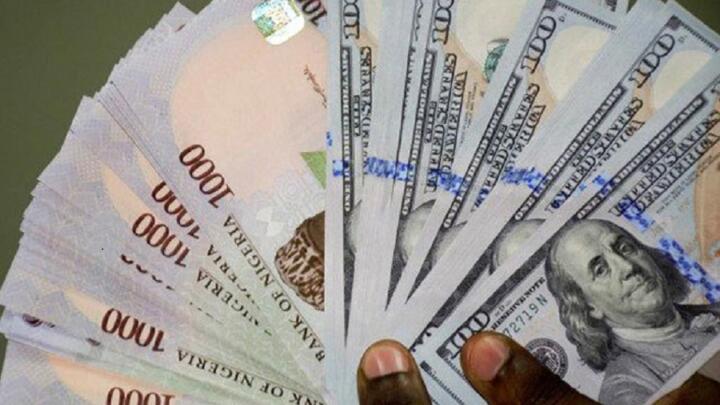Nigeria’s foreign exchange market recorded a notable development as the naira appreciated to around ₦1,497 per dollar at the official window, marking one of its strongest performances in recent months. The improvement was attributed to a combination of factors, including increased foreign exchange inflows, a rise in external reserves, and strategic interventions that have helped stabilise the local currency amid ongoing economic reforms.
For months, Nigerians have been grappling with the volatility of the naira as foreign exchange scarcity, high demand, and speculative trading weakened the local unit against the dollar. The recent gains, however, are seen as an early indication that government policies and market adjustments are beginning to take effect. Financial analysts point to the central bank’s interventions, improvements in oil revenues, and rising remittances as critical drivers behind the new momentum.

One of the most significant contributors to the naira’s recovery is the growth in Nigeria’s external reserves. Recent data revealed that reserves climbed steadily, providing a stronger buffer for the country in terms of import cover and FX interventions. With higher reserves, the central bank is better positioned to intervene when demand pressures mount, thereby calming the market. Analysts highlight that the reserves now cover several months of imports, which boosts investor confidence and reassures businesses about currency stability.
Additionally, inflows from various channels have improved market liquidity. Diaspora remittances, which have consistently played a vital role in foreign exchange supply, have been on the rise, with reports indicating that inflows now average hundreds of millions of dollars monthly. At the same time, renewed investor confidence has seen portfolio investors returning to the Nigerian market, particularly as yields on government securities remain attractive. Oil revenues, boosted by higher crude prices and production improvements, have also added to the supply of foreign exchange.
Market experts believe the central bank’s targeted interventions have further supported the naira’s rebound. In recent weeks, the apex bank injected fresh liquidity into the market through authorised dealers, helping to ease pressure and discourage speculative hoarding of dollars. By enhancing transparency in FX allocations and tightening loopholes in the system, the central bank has also managed to reduce the gap between the official and parallel market rates. This has diminished the incentive for speculative activities that often drive volatility.
The demand side of the equation has also seen some easing. With better access to official FX sources, many businesses are less reliant on the parallel market, which reduces the overall strain on the currency. Importers, in particular, have welcomed the improved availability of dollars, noting that it will help reduce the cost of clearing goods and stabilise supply chains. For households, the strengthening naira could translate into slower increases in the cost of imported goods, offering some relief from inflationary pressures.
The monetary authorities have emphasised that the recent appreciation is not a coincidence but the outcome of deliberate policy actions. The Central Bank of Nigeria (CBN) has reiterated its commitment to ensuring price stability and sustaining reforms in the foreign exchange market. By streamlining the FX system, improving transparency, and addressing illegal flows, the apex bank hopes to entrench long-term stability.
However, economic analysts caution that while the gains are welcome, they remain fragile. The naira’s strength could be undermined by shocks such as falling crude oil prices, disruptions to oil production, or sudden outflows of foreign capital. With Nigeria still heavily dependent on oil exports for its foreign exchange earnings, fluctuations in the global oil market remain a critical risk factor. Similarly, inflationary pressures within the domestic economy could erode the benefits of a stronger naira if not properly managed.
Another challenge lies in sustaining the confidence of foreign investors. While recent reforms have attracted portfolio inflows, long-term stability will require broader structural changes, including improved security, better infrastructure, and predictable policies. Without these, Nigeria could struggle to retain and grow the foreign capital that is currently supporting FX stability.
Despite these risks, many stakeholders are optimistic that the appreciation to ₦1,497 per dollar signals a positive turning point. Traders in the FX market have expressed cautious optimism, noting that the alignment of the official and parallel market rates is a significant development. Businesses also believe that a stronger naira will help improve planning, reduce uncertainty, and encourage investment in the economy.
Looking ahead, the sustainability of the naira’s rebound will depend on the government’s ability to maintain policy consistency, improve non-oil export earnings, and ensure a steady flow of remittances and foreign capital. Strengthening domestic production to reduce import dependency will also play a vital role in reducing demand for foreign exchange.
For now, the appreciation has provided much-needed relief and hope in a period marked by economic strain. If sustained, it could help moderate inflation, restore investor confidence, and lay the foundation for a more stable macroeconomic environment. The central bank is expected to continue monitoring developments closely while reinforcing reforms aimed at ensuring the naira remains stable in the medium to long term.
At ₦1,497 per dollar, the naira’s latest performance offers Nigerians a glimpse of what is possible when policies, reserves, and inflows align. Whether this momentum can be maintained will depend on continued reforms and resilience in the face of domestic and global economic challenges.
Support InfoStride News' Credible Journalism: Only credible journalism can guarantee a fair, accountable and transparent society, including democracy and government. It involves a lot of efforts and money. We need your support. Click here to Donate
